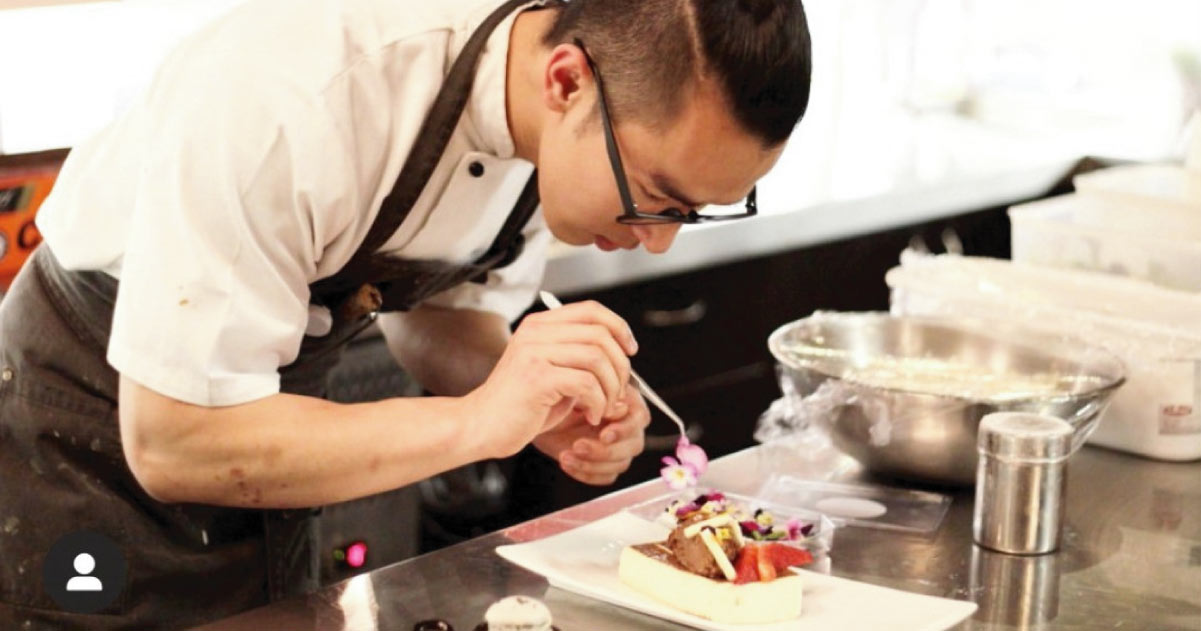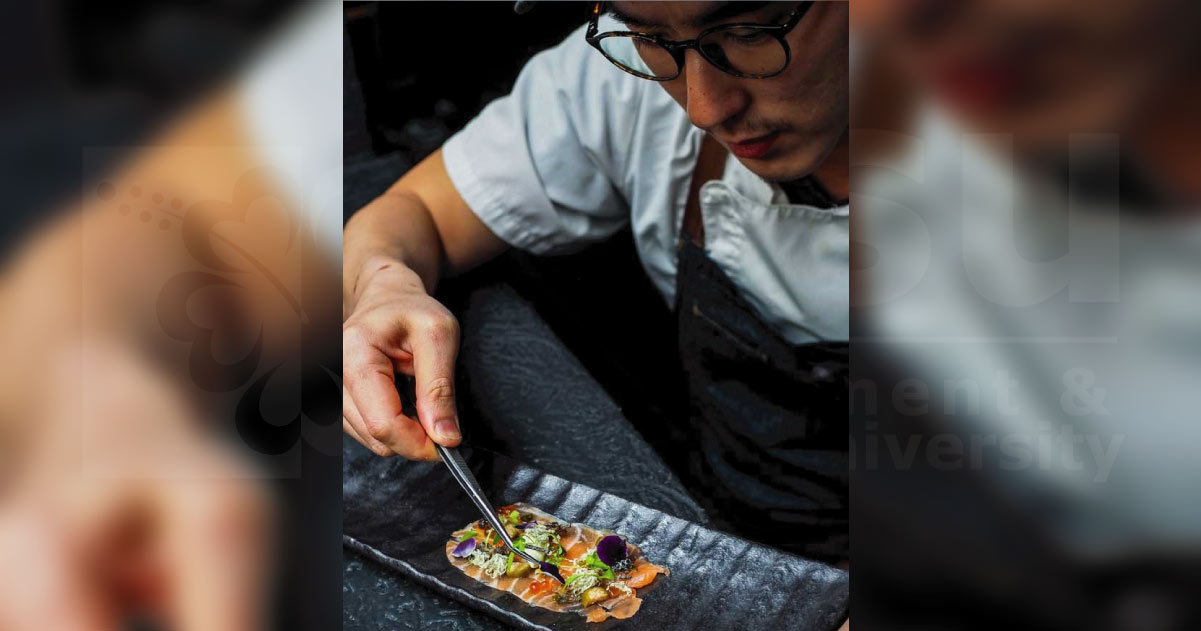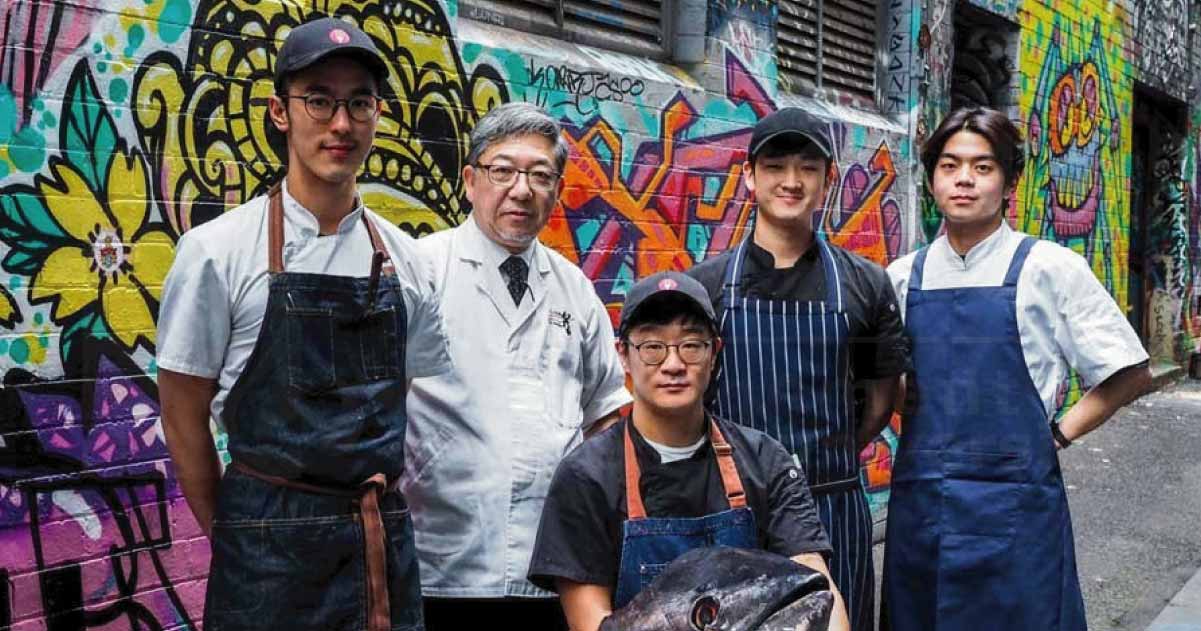

The facts that Japan boasts the lowest obesity percentage and her people live longer than the average age for life expectancy point to the nation’s food and how it is eaten. Traditional Japanese cuisine features more seafood than red meat and plenty of vegetables but only a small portion of rice. Management and Science University (MSU) alumnus Chef Muhammad Hibban Othman Tan attests to the Japanese’s reputation of being among the world’s healthiest people.
“Their diet focuses on whole, seasonal foods and minimal processing. It is low calorie, low sugar, and extremely nutritious,” remarks Muhammad Hibban.

Chef Hibban has been serving healthy fare at the Shoya Japanese Restaurant in Melbourne for the past five years. A graduate of the MSU School of Hospitality and Creative Arts (SHCA), he left for Australia after graduating with a Diploma in Culinary Arts in 2015. He had delved into the culinary industry inspired by his parents’ successful food and beverage business.
“MSU taught me a lot about culinary. I learned to tell the difference between local and imported goods; about food costing, team work, and restaurant management; and so much more. Most importantly, my learning experiences taught me to be independent and prepared me for the real industry out there. The culinary competitions that I took part in, for example, helped me to step out of my comfort zone and widen my exposure to the culinary world,” he reminisces.
Among the budding culinary star’s accolades are a silver medal from the Food and Hotel Malaysia (FHM) Culinaire competition and a bronze from Battle of the Chefs, both in 2013. On his success as a sous chef in the land down under, Chef Muhammad Hibban Othman Tan again credits his alma mater.
“Mobility is characteristic of MSU, with opportunities to go on the GMP (Global Mobility Programme), the GLP (Global Leadership Programme), and the GIP (Global Internship Programme) open to all students across the schools and faculties. With such encouragement, it was only natural for me to venture out into the world,” he concludes.

MSU Bachelor in Culinary Arts (Hons)
MSU Bachelor in Patisserie Arts (Hons)
MSU Bachelor in Food Service Technology (Hons)
MSU Bachelor in Nutrition (Hons)
A Japanese learning experience for two siblings
My year in Japan – from dream to reality, with MSU
MSUrians lead best presentations in Japanese Safety Management programme
Japan scholarship for MSUrian making waves in biomedical science
Keeping up with creative trends and technologies in Tokyo
A summer of mobility in Malaysia
Scaling the skies from ground zero
You’ll never regret going on the Global Mobility Programme!
An international work experience with MSU's Global Internship Programme
Our global mobility experience at Management and Science University
Living her dream in Oxford through MSU
Expanding my global perspectives in Ireland
Teaching and learning in Hong Kong
The facts that Japan boasts the lowest obesity percentage and her people live longer than the average age for life expectancy point to the nation’s food and how it is eaten. Traditional Japanese cuisine features more seafood than red meat and plenty of vegetables but only a small portion of rice. Management and Science University (MSU) alumnus Chef Muhammad Hibban Othman Tan attests to the Japanese’s reputation of being among the world’s healthiest people.
“Their diet focuses on whole, seasonal foods and minimal processing. It is low calorie, low sugar, and extremely nutritious,” remarks Muhammad Hibban.

Chef Hibban has been serving healthy fare at the Shoya Japanese Restaurant in Melbourne for the past five years. A graduate of the MSU School of Hospitality and Creative Arts (SHCA), he left for Australia after graduating with a Diploma in Culinary Arts in 2015. He had delved into the culinary industry inspired by his parents’ successful food and beverage business.
“MSU taught me a lot about culinary. I learned to tell the difference between local and imported goods; about food costing, team work, and restaurant management; and so much more. Most importantly, my learning experiences taught me to be independent and prepared me for the real industry out there. The culinary competitions that I took part in, for example, helped me to step out of my comfort zone and widen my exposure to the culinary world,” he reminisces.
Among the budding culinary star’s accolades are a silver medal from the Food and Hotel Malaysia (FHM) Culinaire competition and a bronze from Battle of the Chefs, both in 2013. On his success as a sous chef in the land down under, Chef Muhammad Hibban Othman Tan again credits his alma mater.
“Mobility is characteristic of MSU, with opportunities to go on the GMP (Global Mobility Programme), the GLP (Global Leadership Programme), and the GIP (Global Internship Programme) open to all students across the schools and faculties. With such encouragement, it was only natural for me to venture out into the world,” he concludes.

MSU Bachelor in Culinary Arts (Hons)
MSU Bachelor in Patisserie Arts (Hons)
MSU Bachelor in Food Service Technology (Hons)
MSU Bachelor in Nutrition (Hons)
A Japanese learning experience for two siblings
My year in Japan – from dream to reality, with MSU
MSUrians lead best presentations in Japanese Safety Management programme
Japan scholarship for MSUrian making waves in biomedical science
Keeping up with creative trends and technologies in Tokyo
A summer of mobility in Malaysia
Scaling the skies from ground zero
You’ll never regret going on the Global Mobility Programme!
An international work experience with MSU's Global Internship Programme
Our global mobility experience at Management and Science University
Living her dream in Oxford through MSU
Expanding my global perspectives in Ireland
Teaching and learning in Hong Kong